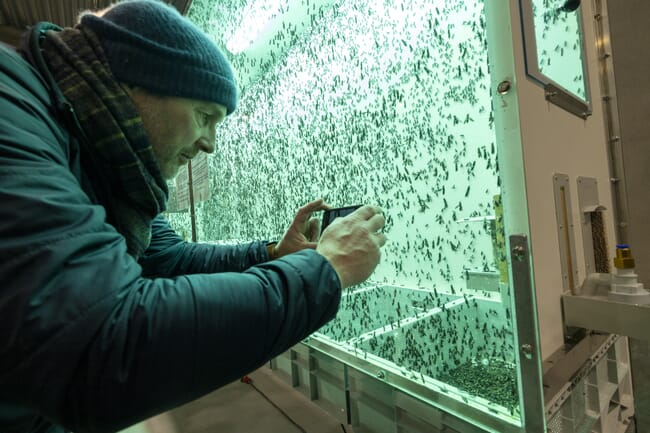
© Enorm Biofactory
The facility, in Eastern Jutland, covers 22,000 square metres and can process 100 tonnes of larvae per day.
Carsten Lind Pedersen, co-founder and CEO of Enorm Biofactory, stated at the opening: "Today, we celebrate several years of hard work, where skilled colleagues and numerous partners have made this project possible. Now, the next phase begins, where we need to scale up the production to full operation."
The construction of the insect factory has been underway since 2022, with various stakeholders, including the agricultural company, DLG, which is also a co-owner of the venture.
Jesper Pagh, Group COO at DLG, said: "This project is a textbook example of the direction our business is moving towards. Enorm Biofactory is a fantastic story of Danish innovation that can provide alternative protein sources for farmers. Now, we look forward to the production getting underway and being commercialised."
Upcycling from food industry
At the facility black soldier fly larvae will primarily be fed on by-products from the food industry. After approximately 12 days, the larvae are processed into oil and protein.
"We are now ready to receive large quantities of by-products from the food industry. A prime example is Arla Foods Ingredients P/S, which can reduce their food waste by 16 percent from their factory, Danmark Protein, in Videbæk. This is because by-products from production are upcycled into feed instead of being sold for biogas. We hope that more Danish food producers will take responsibility for recycling nutrients through larvae, because circularity is one of the keys to developing a sustainable food industry," said Pedersen.




